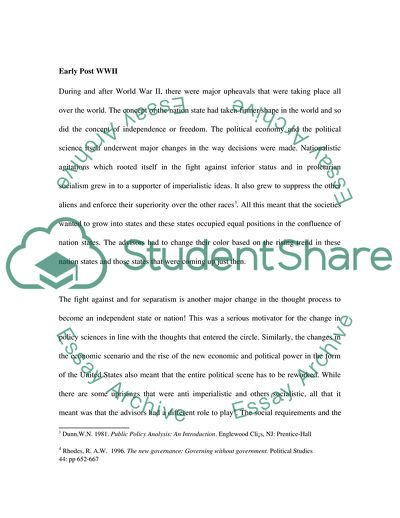Cite this document
(The Issues Concerning Policymaking after WWII Essay Example | Topics and Well Written Essays - 1500 words, n.d.)
The Issues Concerning Policymaking after WWII Essay Example | Topics and Well Written Essays - 1500 words. https://studentshare.org/social-science/1709283-multidisciplinary-problem-oriented-and-normative-perspective-in-policy-studies
The Issues Concerning Policymaking after WWII Essay Example | Topics and Well Written Essays - 1500 words. https://studentshare.org/social-science/1709283-multidisciplinary-problem-oriented-and-normative-perspective-in-policy-studies
(The Issues Concerning Policymaking After WWII Essay Example | Topics and Well Written Essays - 1500 Words)
The Issues Concerning Policymaking After WWII Essay Example | Topics and Well Written Essays - 1500 Words. https://studentshare.org/social-science/1709283-multidisciplinary-problem-oriented-and-normative-perspective-in-policy-studies.
The Issues Concerning Policymaking After WWII Essay Example | Topics and Well Written Essays - 1500 Words. https://studentshare.org/social-science/1709283-multidisciplinary-problem-oriented-and-normative-perspective-in-policy-studies.
“The Issues Concerning Policymaking After WWII Essay Example | Topics and Well Written Essays - 1500 Words”. https://studentshare.org/social-science/1709283-multidisciplinary-problem-oriented-and-normative-perspective-in-policy-studies.


